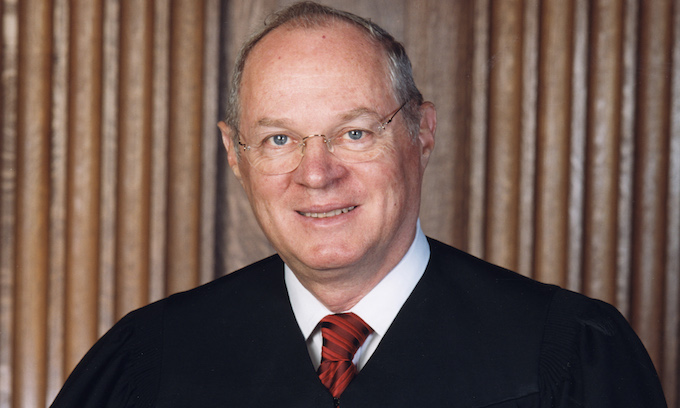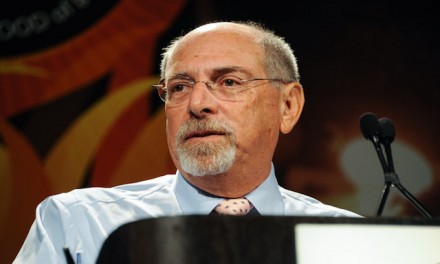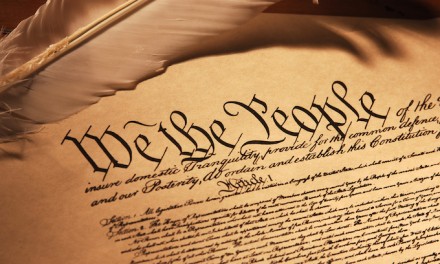America has been living in Justice Anthony M. Kennedy’s world for the past 12 years.
The 81-year-old jurist, who announced his retirement Wednesday, has been the decider in chief on most of the major controversial cases to reach the Supreme Court ever since 2006, which was when the court’s balance shifted to him after Sandra Day O’Connor’s retirement.
Declaring a national right to same-sex marriage? Justice Kennedy was the tie-breaker, delivering the landmark win for gay rights.
Affirming affirmative action’s role on college campuses? He wrote that opinion in 2016.
Shaping the counters of abortion law, approving President Trump’s powers to enact the travel ban and creating the modern freewheeling campaigns dominated by a wall of television ads — Justice Kennedy was the pivotal vote in each of those cases.
Lawyers arguing before the court would go into many cases knowing the other eight justices would split 4-4, and would essentially be arguing for one man. Whatever his decision was, it would shape the lives of millions of Americans.
“For the last three decades, Justice Kennedy has been at the center of every moral, legal and ethical issue in our republic,” said Josh Blackman, a professor at the South Texas College of Law. “That role is over. Now, litigants will no longer have to convince Justice Kennedy, as the man in the middle, that their position is correct. This is a new world.”
Justice Kennedy will remain on the court through July, finishing up final business. But he joined his final opinions Wednesday as the court closed out its 2017-2018 term, and he announced his retirement just hours later.
Lawmakers and legal observers who have been frequent critics of Justice Kennedy suddenly were embracing his legacy as they worried about what might happen with Mr. Trump getting the chance to nominate a replacement.
“Justice Kennedy was not always on the right side of every issue, but he often served as a critical bulwark against the extremes of conservative jurisprudence on issues ranging from marriage equality to abortion rights and racial justice,” said Rep. Jerrold Nadler of New York, the top Democrat on the House Judiciary Committee.
Gay rights activists and the NAACP praised his “moderating influence.”
Nominated to the court by President Reagan, he was confirmed in 1988 on a 97-0 vote, praised by Republicans as a conservative but by Democrats as someone who wasn’t rigid. Liberal icon Edward M. Kennedy said he had the chance to become an “outstanding justice.”
At the end of the terms in 2015 and 2016, it seemed liberals were inclined to agree. Justice Kennedy had joined one ruling blocking states from too-restrictive abortion laws and had written major decisions upholding affirmative action in college admissions and establishing a fundamental right to marriage for same-sex couples.
Liberal court observer Garrett Epps, writing in the Atlantic in 2016, wondered whether Justice Kennedy was rebelling against the direction of the Republican Party that appointed him.
“Kennedy has really shifted,” he wrote after the affirmative action and abortion rulings.
By this year, though, it was conservatives who were once again cheering as Justice Kennedy closed out his career voting to affirm the legality of the travel ban and relieving public-sector workers of the duty to pay dues to labor unions with which they disagree politically.
Indeed, Justice Kennedy sided with the other four Republican-nominated justices on 13 cases in the 2017-2018 term. He didn’t side with the four Democrat-appointed justices in any 5-4 decisions this term.
Sen. Christopher A. Coons, Delaware Democrat and a member of the Judiciary Committee that will vote on his replacement, wondered about the timing of the retirement, giving Mr. Trump a chance to speed through a successor before the end of the year.
“I was disappointed Justice Kennedy chose to retire at this point. I think he puts his legacy at risk,” Mr. Coons said.
One major exception to Justice Kennedy’s role as chief decider was Obamacare. In that 2012 ruling, he sided with three other Republican-appointed justices to strike down the crux of the law — only to have Chief Justice John G. Roberts Jr. side with the Democrat-appointed justices in upholding it.
Two decades earlier, he formed a middle-ground bloc on abortion, joining with Justice O’Connor and Justice David Souter — also Republican appointees to the bench — to narrow, but reaffirm, the 1973 Roe v. Wade decision that established a national right to abortion.
In subsequent years, he narrowed the death penalty, expanded the right to bear arms for average Americans and gave terrorism suspects held at Guantanamo Bay the right to challenge their detentions in regular U.S. courts.
But his most lasting legacy will likely be on gay rights, where he first ruled with the Democrat-appointed justices against the federal Defense of Marriage Act in 2013, then in 2015 delivered the court’s opinion in the landmark Obergefell v. Hodges case, which expanded marriage rights to same-sex couples nationwide.
“It would misunderstand these men and women to say they disrespect the idea of marriage. Their plea is that they do respect it, respect it so deeply that they seek to find its fulfillment for themselves,” he wrote. “Their hope is not to be condemned to live in loneliness, excluded from one of civilization’s oldest institutions. They ask for equal dignity in the eyes of the law. The Constitution grants them that right.”
⦁ Alex Swoyer and Tom Howell Jr. contributed to this report.
© Copyright (c) 2018 News World Communications, Inc.
—-
This content is published through a licensing agreement with Acquire Media using its NewsEdge technology.



















Recent Comments